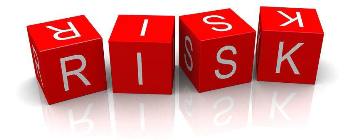| By: Paul S. Cilwa | Viewed: 7/26/2024 Posted: 4/11/2015 |
Page Views: 5466 | |
| Topics: #Risk #Alcohol #Recovery #Drugs | |||
| Taking chances with risks. | |||

Today's news is, perhaps, not wholly unexpected. I got a text from a friend, that a mutual friend of ours is in the hospital with alcohol-induced hepatitis. In other words, he is dying from continuing to engage in behavior that is generally considered to be risky: Drinking heavily despite constant warnings and cajoling and threats by his loved ones to stop. And it makes us all wonder, why didn't he just stop when he saw it was making him sick?
Anyway, our friend, Jason (who is also my ex-boyfriend of two years), has never been able to stop drinking. He's been through a 30-day recovery program; he's promised his husband he would stop drinking, claimed he had stopped drinking, all to no avail. So, our mutual friend tells me, Jason is now in the hospital with alcohol-induced hepatitis. He is "medically sedated" meaning he is unconscious for the third day in a row. The doctors have to remove fluid from his abdominal cavity. They say they believe they can save Jason from this occurrence; but if he ever, ever drinks again, it will kill him.
We all engage in risky behavior at times. Usually the risks are relatively small, like the risk of getting cancer from artificially-sweetened soft drinks, or of diabetes from sugary drinks. Sometimes they are somewhat greater, such as having unprotected sex with someone one doesn't know well. But in each case, when facing a new risk (new to us, that is), we instinctively assess the risk and potential reward; if the reward is great enough, and the risk judged acceptable, we move forward and, hopefully, don't get killed in the process.
Generally, most of us do not start our risk-taking with base jumping or shark baiting. But the thing is, risk is a percentage game. A single Diet Coke is highly unlikely to kill; but tens of thousands of them, over time, increase the risk of cancer, diabetes, or obesity to an almost sure thing. Yet we tend to dismiss the risk the more times we take a chance without disaster. So, as the risk increases, we actually perceive it as being reduced.
Some risk-takers rejoice in their risk-taking. They say it makes them feel more alive! Whitewater rafting, a favorite of mine, is somewhat risky—more so than staying home watching Stargate: SG-1, I would assume—but if I did die while on the river, it would be while doing something I loved, and that would be a good thing. (Would you rather die during a favorite activity, or while saving an Excel spreadsheet at work?) Just because I, personally, do not care for drinking or drugs doesn't mean someone else might not find this to be a cherished activity. But…do they? Really?
Another friend, this one from Virginia, died years ago from a heroin overdose. He'd been using H for years, yet managed to underestimate his ability to process it, and died, leaving an infant daughter behind. He was not suicidal. He simply misjudged the increasing risk and that misjudgment did him in.
The science of statistics maintains that "chance" doesn't change, no matter how many times the dice are rolled. They say that, no matter how often tails comes up, the odds are still 50/50 that they'll come up again: No more, no less.
But people are not dice, and we are subject to what I call cumulative risk. One small dose of arsenic won't kill you, but continued doses will. Same for heroin. Same for alcohol, if you cannot control (or choose not to control) how much or often you drink.
Most drinkers, I understand, drink as a part of a social scene they enjoy. I submit that the drinking, in such a case, is not really the core experience they enjoy; and so the alcohol could be dispensed with without impacting the social experience.
Jason, on the other hand, is not a social drinker. For many years, he drank secretly. And it doesn't give him enjoyment; he drinks to achieve unconsciousness. Jason carries a great deal of emotional pain (he had one of those horror-story upbringings), and alcohol is how he tried to control that pain (as opposed to, say, therapy). I assume that, when he started drinking, he had heard warnings about alcoholism but found the risk/reward ratio to be acceptable. And perhaps it was…for awhile. But, as I say, the cumulative risk increases with time, even as perception of that risk makes it seem less likely.
And now Jason is on the precipice of death. This is not due to lack of support from his friends. This is not due to our not being willing to extend "another chance". This is due to the simple fact that Jason learned, after repeated exposure to his drug-of-choice, that he didn't die from using it. So far.
That's the thing about death. You only need it to happen once to prove the risk wasn't, actually, worth it. And then, of course, it's too late.
We all hope that Jason improves; that he takes the hint, goes to therapy and a good recovery program, works it, and lives happily ever after. The alternative, though, is the risk that he won't follow this path, or that it won't work even if he does, and that he will eventually die of his addiction.
And it's a risk of near-100% likelihood, based on past performance.
As is the risk that we survivors will wind up suffering the loss of our friend.





